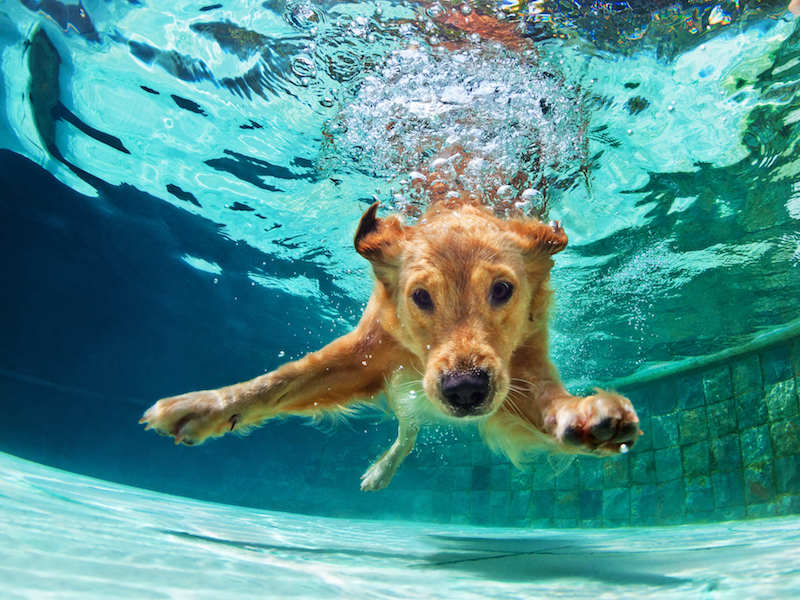
There are a lot of different things that can damage the delicate that makes a hearing aid work the way it does, but few have the impact of water. In fact, you could call moisture kryptonite for hearing aids. Even if you already know that and take care to protect your investment from the shower, pool, or a good face washing, more than likely you are missing the most common reason for water damage in hearing aids: humidity.
Permanent damage is done by invisible moisture. It’s essential to educate yourself about why humidity damages hearing aids.
Let’s Talk About Humidity
Despite the fact that the word humidity is very common, what does it actually mean? PBS describes humidity as water molecules in the air. The relative humidity refers to the ratio of water molecules in the air compared to how many the air can actually hold. The higher the percentage, the wetter everything feels.
Humans cool their body by sweating so that makes us very sensitive to humidity. When you sweat it evaporates into the air, but that doesn’t happen as fast when the humidity level is high. Moisture and electronics don’t mix well and that includes hearing aids.
Understand Humidities Effect on Hearing Aids
Too high or, too low, humidity can influence your hearing aids. When water vapor percentages are high condensation can accumulate on the delicate mechanisms that make electronic devices function, and low humidity can cause brittle core materials.
Hearing aids rely heavily on internal electronics to work. A sophisticated signal processing chip manages noise levels in a modern hearing aid. It’s what is behind elegant features like:
- Noise reduction
- Anti-feedback
- Targeted listening programs
- Digital sound streaming
Moisture can collect in the hearing aid when humidity is high and harm that component. Batteries get wrecked and you get corrosion of elements inside of the case. You might as well drop your hearing aid in a pool full of water, and the effect is the same.
Controlling Humidity
Water resistant models are currently available. Having this feature doesn’t mean you can swim with your hearing aids in your ear, but it does give some protection from humidity and other weather-related concerns such as getting caught in an unexpected rainstorm or even sweat when you work out.
If you live in a humid area, think about using a room or house dehumidifier to decrease water vapor indoors. It’s not only your hearing aid that will benefit, there are health benefits, and other electronics in your house will also be protected. Dehumidifiers reduce the risk of mold, mildew and dust mites, so everyone breathes a little better, too. Although a house or room dehumidifier will help protect your hearing aids, it’s not enough. There are a few other things you can and should do.
Look for the dehumidifier made for hearing aids. There is one out there for every budget. Drying kits rely on silica gel crystals to protect the electronics. Moisture is eliminated by putting the hearing aids into the dehumidifier for a couple of hours. There are also storage containers that dry hearing aids out each night as you sleep. In a pinch, you could use a bag of uncooked rice to remove moisture.
Get in the habit of opening the battery compartment every time you store your hearing aids. By pulling that door open before you put the hearing aid down, you expose the batteries and other elements to the air, allowing any condensation built up to evaporate naturally. Don’t just do this in the summer, do it all year round.
Always store your hearing aids in a cool, dry place. Avoid putting them in the glove compartment, in a hot room or on a table in the sun.
Thinking Past Humidity
Damage can be caused by other types of wetness. Take precautions to protect them from other kinds of wet such as:
- Make sure all lotion or sunscreen is fully absorbed before touching your hearing aids or putting them in your ears.
- Leave your hearing aids in a safe place before you go swimming.
- Wear a sweatband when exercising. If you are wearing your hearing aid then it’s a good idea in general. Sweat in your ears can cause problems later.
- Check surfaces before you put your hearing aid down. A glass or coffee cup can leave moisture behind.
Your hearing aids are a valuable asset, so treat them that way. Keep in mind how moisture can damage your hearing aids and make sure to prevent water from getting in them. If your hearing aid already has water damage make an appointment for service with a hearing aid specialist.
